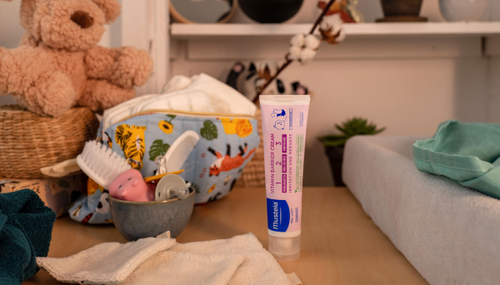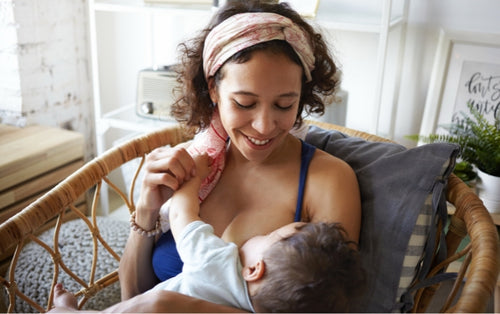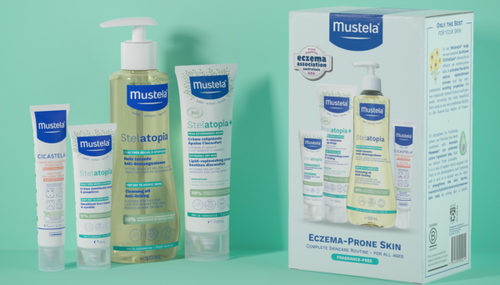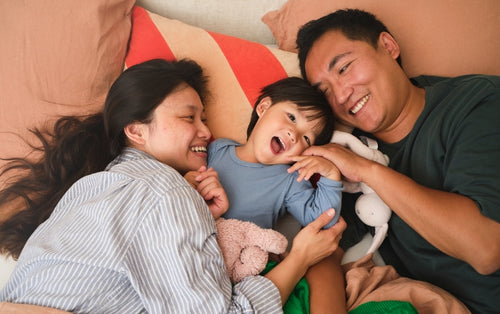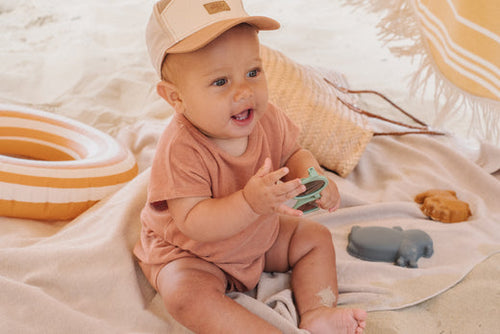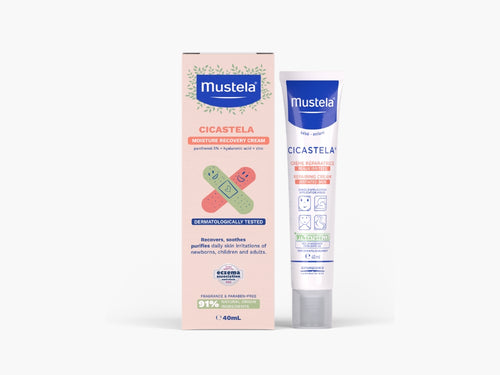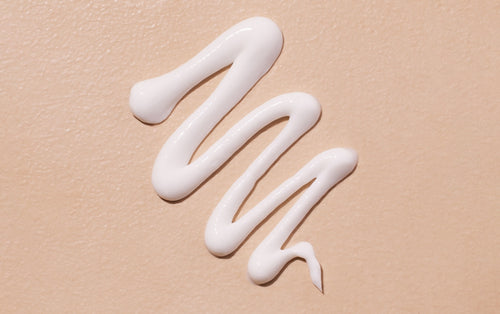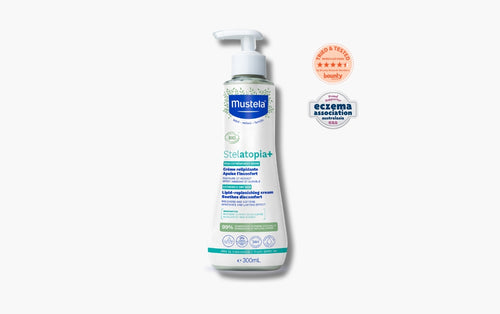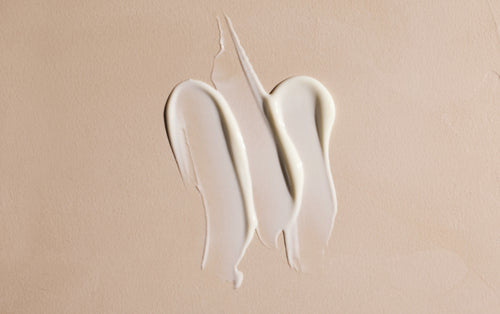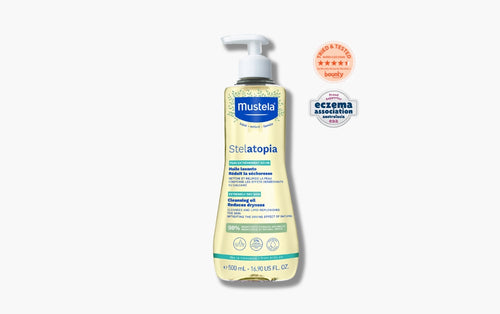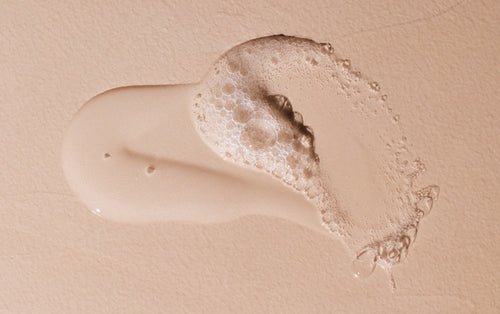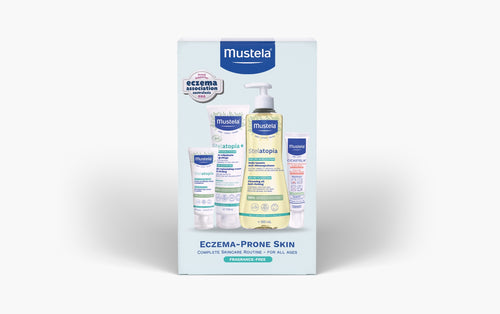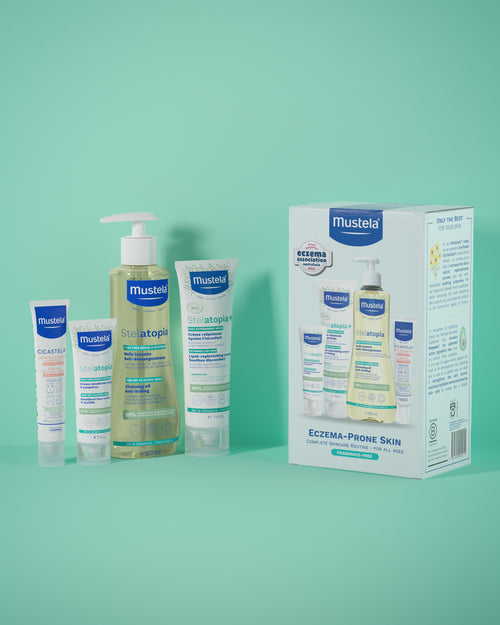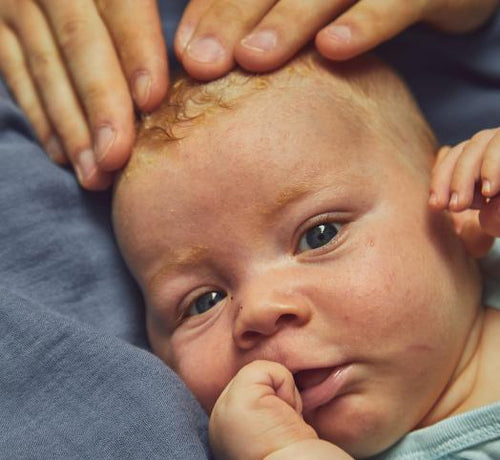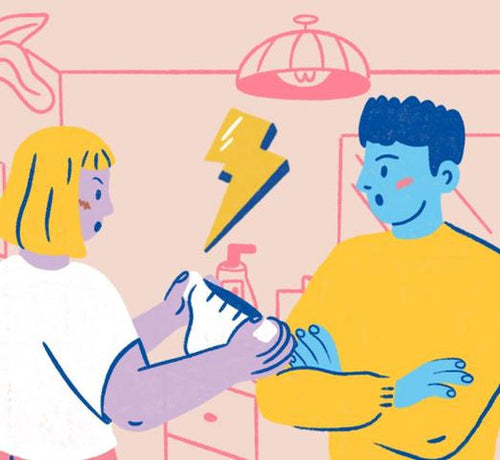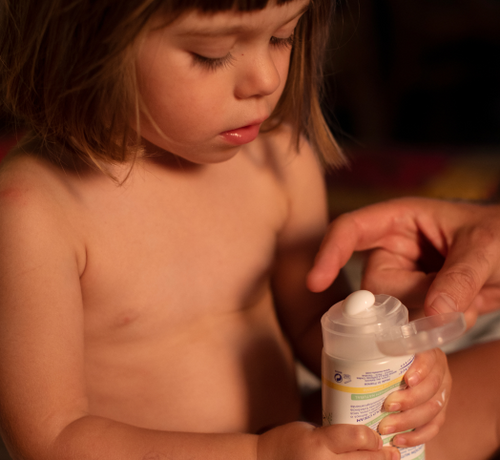- Avoid sun exposure between 11.00am and 4.00pm.
- Always seek shade when the sun is strong. Even in the shade or under a parasol, protect your baby as more than 80% of UV rays pass through clouds.
- Never leave your baby naked or in a swimming costume in the sun. Dress your child in loose-fitting, thick cotton clothing to filter UV rays, a wide-brimmed hat and suitable wide-brimmed sunglasses or goggles (UV category 3 or 4)
- Make sure your baby drinks water regularly, even if they don't ask for it.
- Apply a thick layer of sunscreen SPF50 20 minutes before exposure. Focus on sensitive areas that
Living in Australia, your baby is likely to be exposed to the sun. It is important to take special precautions to protect their delicate skin. By following a few simple rules, you can protect your baby's skin and help maintain its natural defences against potentially serious sun damage. It will also teach your child to follow these recommendations in the future.
Why is baby skin more sensitive to the sun?
Adult skin can protect itself from the sun as long as it is not exposed for too long. The top layer of skin, together with melanin and the body's own cell repair mechanisms, help to provide this natural sun protection. But in babies and young children, these defences are immature and their skin is finer, making them particularly vulnerable to the sun:
- Its protective barrier mechanism is less effective and UV rays can penetrate more easily.
- Their immune system is immature. It cannot adequately defend their skin against UV rays.
- Their pigment system, which should protect their skin, is not fully developed.
- In addition, babies do not sweat very much, which makes them more sensitive to temperature changes, sunburn and dehydration.
What are the harmful effects of sun exposure?
Excessive exposure to the sun can burn the epidermis and cause sunburn, which is quite painful, but not only. It can also lead to heat exhaustion with acute dehydration, headache and loss of consciousness, especially in children. Skin that has been weakened by sunburn, especially before the age of 10, is always vulnerable.
Over the years, prolonged exposure to the sun without proper protection and repeated sunburns lead to accelerated ageing of the skin and a weakened immune system. In severe cases, it can cause skin cancer and cataracts, which can lead to blindness.
How can I protect my baby's skin from the sun?
How to choose the right sunscreen for your little one?
Your baby's skin is fragile, thinner than yours and particularly sensitive to sunlight. That's why it's important to choose a sunscreen that provides optimal protection against the sun's harmful rays, but also respects your child's delicate skin and preserves its supply of healthy cells.
Here are some recommendations for choosing your baby's sunscreen:
-
SPF 50+ and UVA protection combined with skin barrier protection to maintain the skin's natural defences and prevent any cell damage that could result from sun exposure
-
High tolerance with a hypoallergenic formula, alcohol and paraben free and dermatologically tested
-
Water and sweat resistant, visible when applied so that you don't miss a spot
-
Suitable for your baby's skin type: if your baby has very fair or sensitive skin, choose a product specially formulated for intolerant skin types
Take good care of your sunscreen products: make sure the tube or spray cap is tightly closed, don't leave products in full sunlight and don't reuse a product within a year of opening it.
